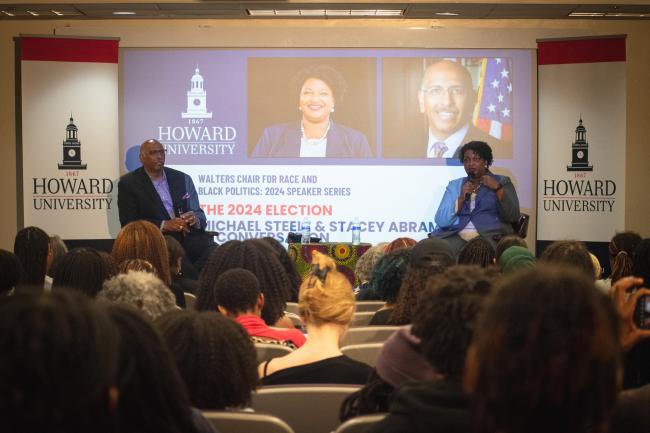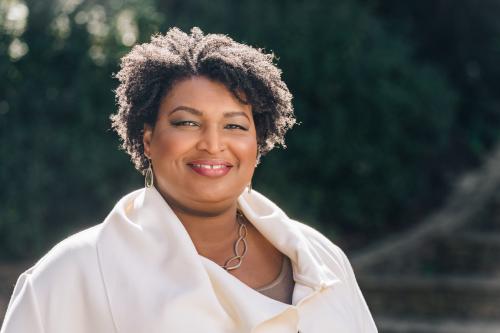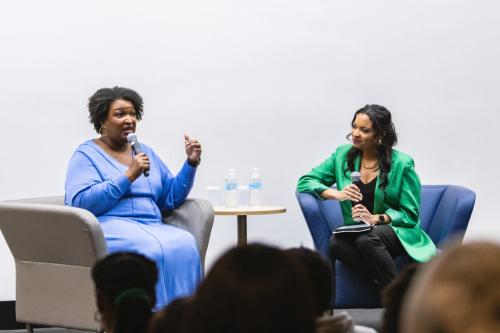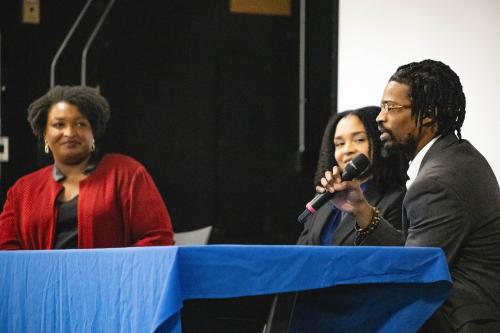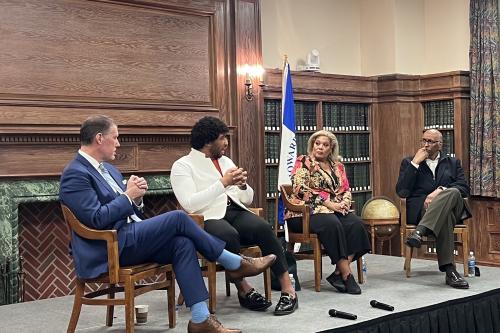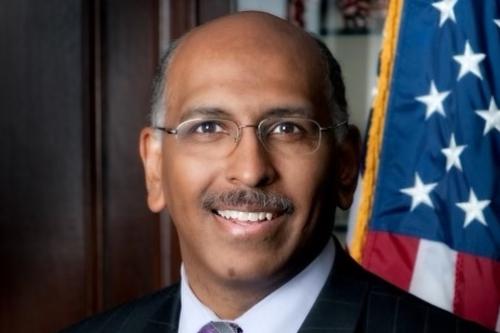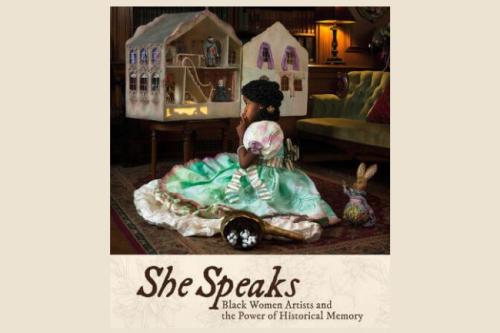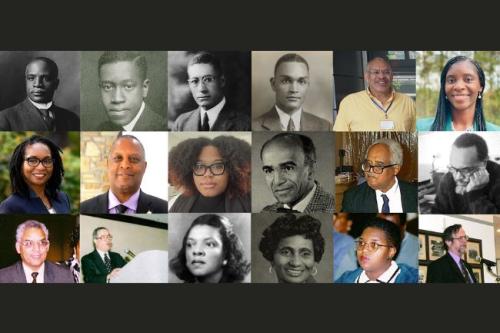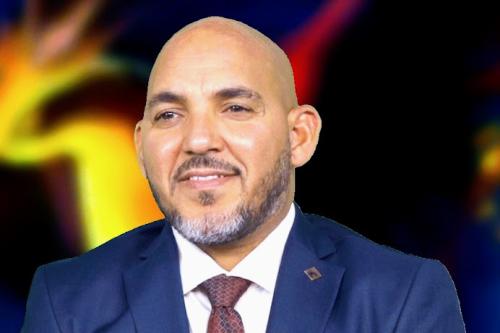Stacey Abrams, former minority leader in the Georgia House of Representatives and Howard University’s inaugural Ronald W. Walters Endowed Chair for Race and Black Politics, hosted a wide-ranging conversation with Michael Steele, former chair of the Republican National Committee and the University’s 2023-2024 Gwendolyn S. and Colbert I. King Endowed Chair in Public Policy.
Inside a packed auditorium at the Howard University School of Social Work, the political luminaries with vastly differing ideologies joined forces to extol the virtues of camaraderie and bipartisanship, especially in the current electoral climate. They shared their expertise on topics including the state of American politics, the importance of political participation, and the stakes of the 2024 electoral cycle.
“When we talk about race and Black politics, one of the most essential ingredients is understanding that we are a diasporic community – that we represent not only continent and community, but that we have a diversity of opinion,” Abrams said in her opening remarks. “We are all made better and wiser when we engage opinions and conversations that are not dictated before we get started.”
Abrams and Steele’s Views of America’s Political Playground
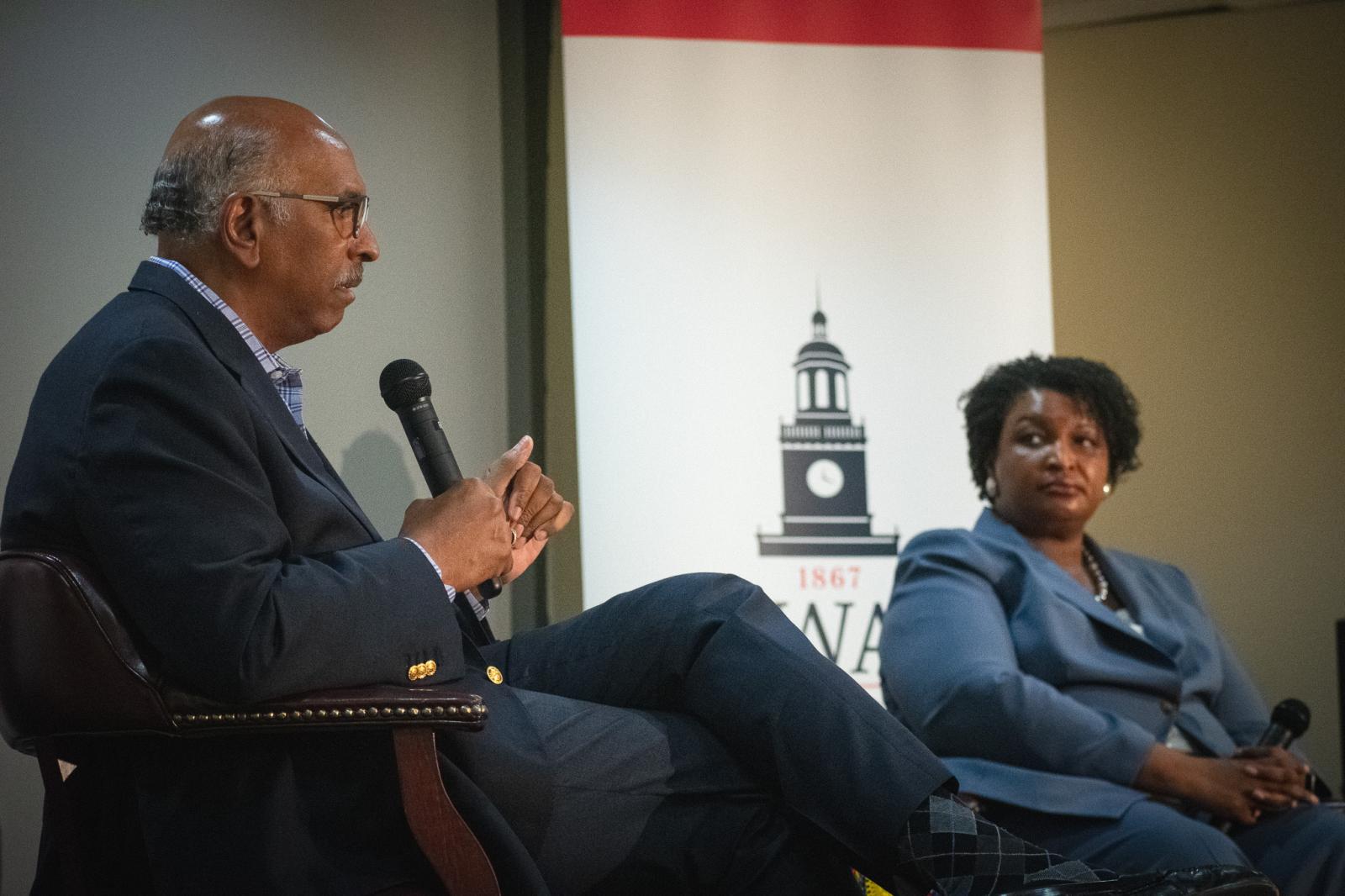
The pair shared anecdotes about their respective political histories: Steele, a native Washingtonian who would ascend to the lieutenant governorship of Maryland and, later, head of the Republican party; and Abrams, a Mississippi-raised Georgian who rose to become her state legislature’s minority leader. For both, bipartisanship proved essential in how they sought to lead, and is particularly crucial for the country’s future.
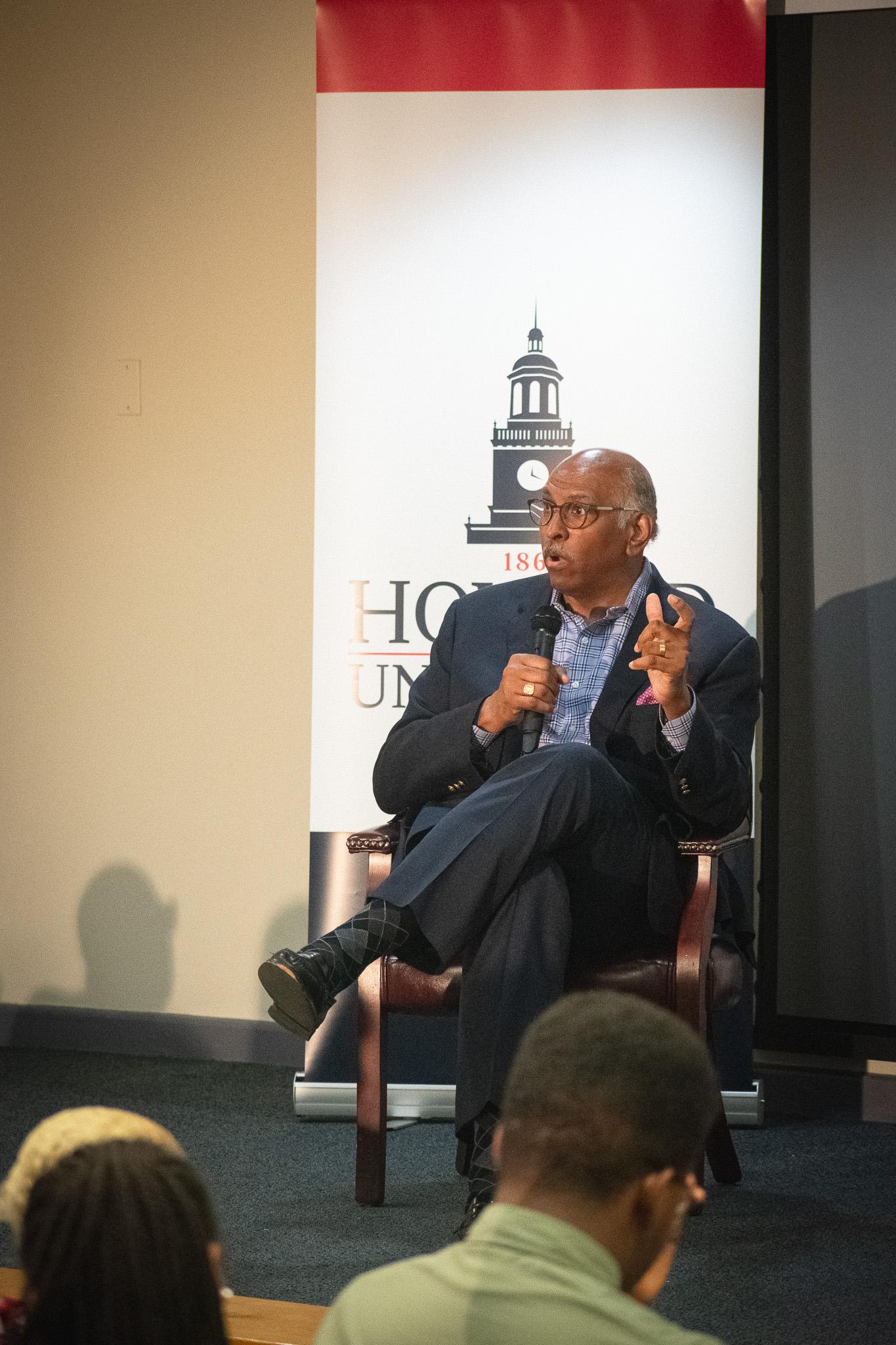
Steele recalled a memory from his 2002 inauguration as he recognized the ceremony, in which he became the first African American to hold state office in Maryland, was transpiring place mere steps from a key harbor where enslaved Africans first ported in the United States.
“In that moment, I’m standing and looking at all the people who are gathered, and I’m asking myself, ‘Are you the lieutenant governor of Maryland or are you the lieutenant governor for Republicans?’” Steele said. “It’s understanding what your responsibilities are.”
Abrams shared that in her first days as Georgia’s minority leader, she negotiated the continuance of a scholarship program that required her to work with the state’s Republican leadership, a moment of amity she says was weaponized against her in her 2018 gubernatorial campaign. While she conceded the deal was imperfect, Abrams believes it was essential for the education of Georgia’s youth, and thereby the future of Georgia itself.
“Sometimes your responsibility is to take a position not against your party, but in the best interest of your people,” Abrams said. “We tend to go into partisan politics thinking it’s us-versus-them, and I think it’s always got to be that politics are a tool for your policy. Your policies can’t be a tool for your politics.”
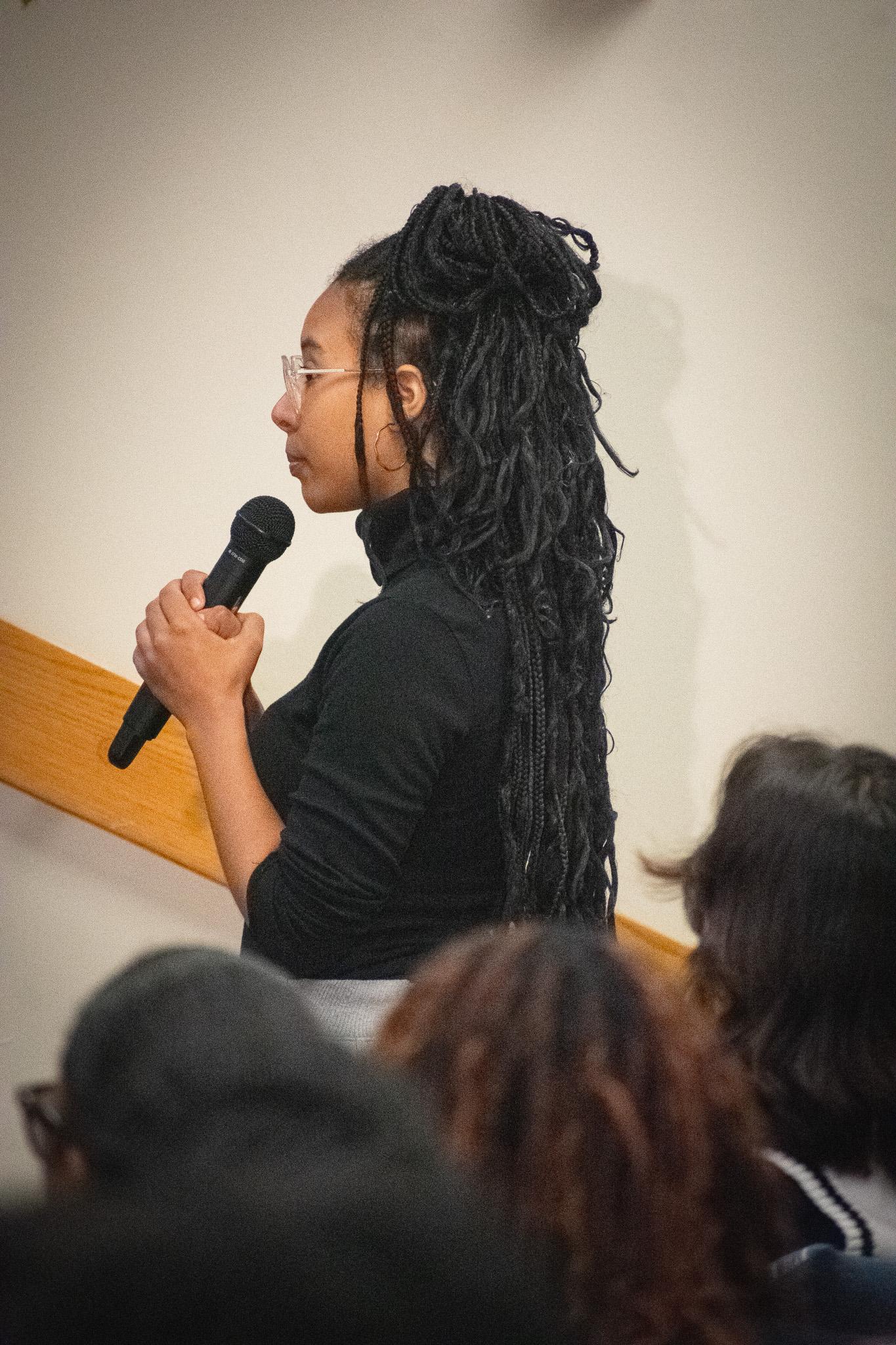
At the end of their discussion, the pair fielded questions from the audience, including one from senior Kyah Tilsen, a political science major and Black studies minor from Minneapolis, on balancing incremental progress against larger societal ambitions. “Incrementalism is not a bad word,” Abrams responded, “as long as you have a vision for the end goal.”
“For a lot of the people I worked with, because we couldn’t have it the next day, it became something we couldn’t have at all,” Abrams said. “I use incrementalism as a measure, it is not the mission. The mission is change – the measure is what can you get done next. Each time I made progress, I marked that progress against what my ultimate goals were.”
“Help others see the vision that you’re living out – express it to them, engage them, challenge their thinking,” added Steele. “That’s how you’re going to bring about that America for the next generation, because it will be an America that you’re helping to write.”
Furthering Dr. Walters’ Political and Communal Legacy
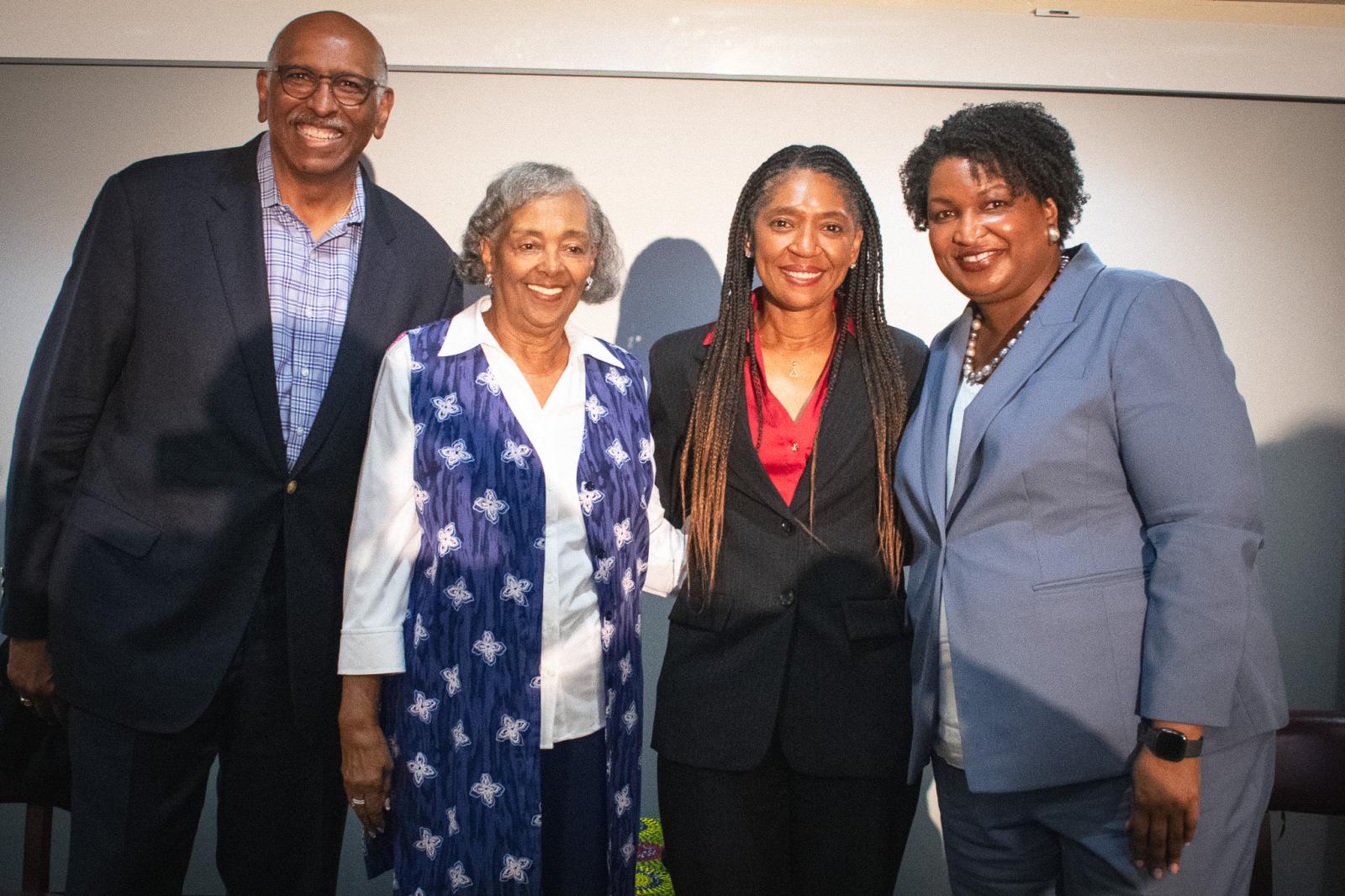
As the Ronald W. Walters Endowed Chair, Abrams’ role includes fostering interdisciplinary University collaborations on critical issues of race and Black politics, especially issues affecting Americans within the African diaspora.
Walters was an internationally renowned scholar, activist, and expert on issues affecting the African diaspora until his death in 2010. The endowed chair was created in his namesake to continue his legacy of expanding the University’s capacity as a leader in emerging scholarship in Black politics.
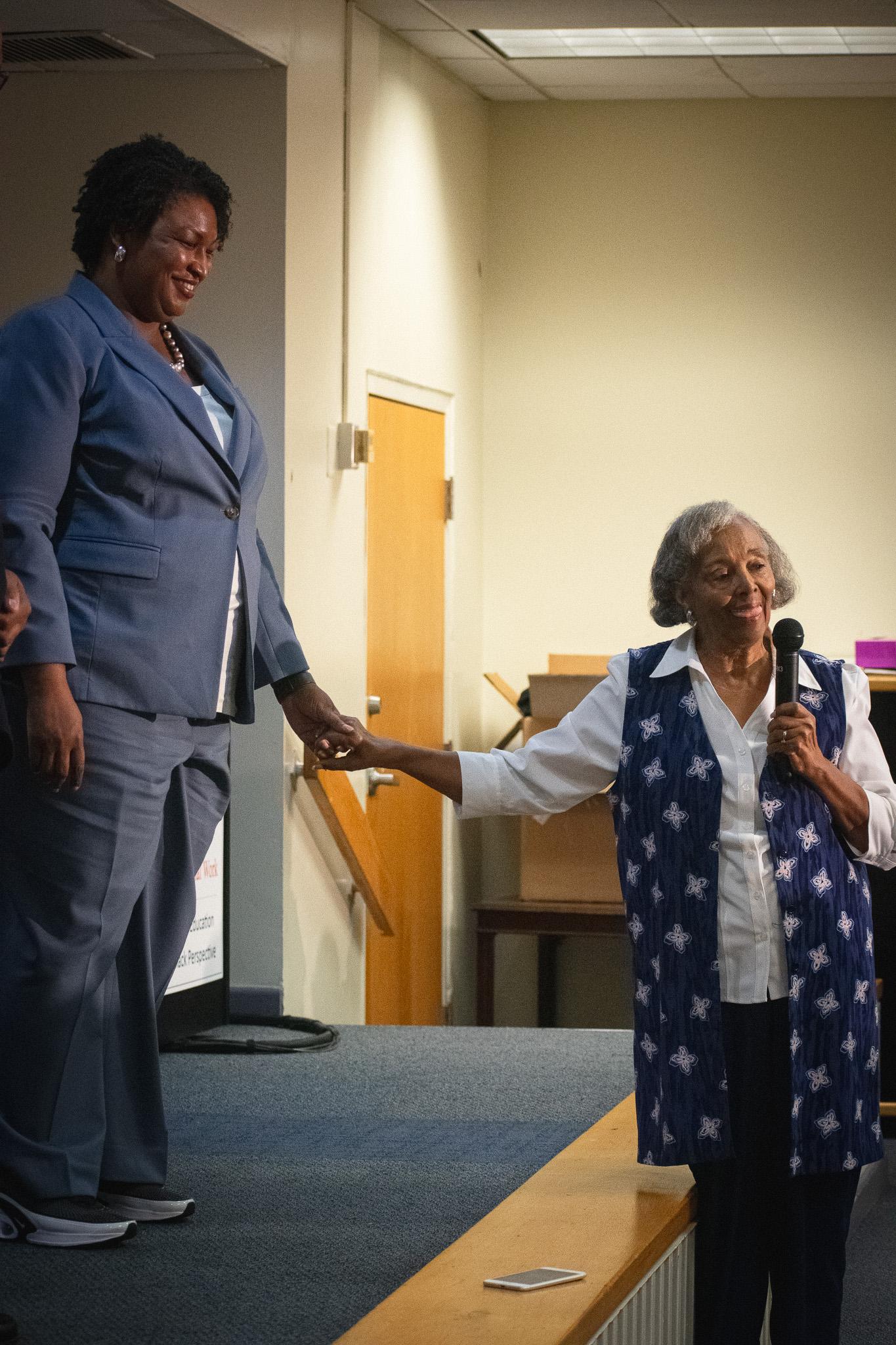
Patricia Turner Walters, Walters’ wife, attended the talk and spoke glowingly of both Abrams and Steele. “You have these two powerful people at Howard University,” Walters said as the event concluded. “What more can I say? Ron is smiling down.”
Abrams is also leading the Walters Speakers Series, with invited guests on a range of topics representing diverse perspectives. Her chat with Steele is the first of the academic year, and she is scheduled to return to campus for additional community conversations this Fall.
“I was pleased to join Michael Steele and the Howard University community for a conversation about the 2024 elections and the state of our democracy,” Abrams said. “I was encouraged by the energy and thoughtfulness of the students who shared insightful questions and perspectives. This event was an incredible way to spend National Voter Registration Day, and I can’t wait to continue the discussion.”


